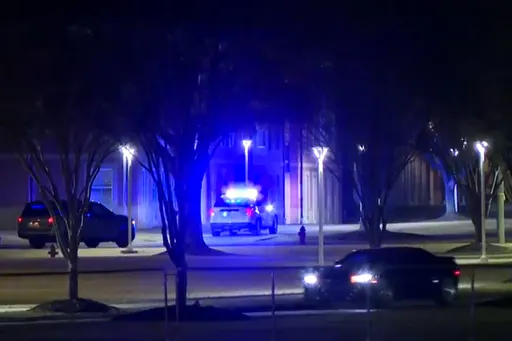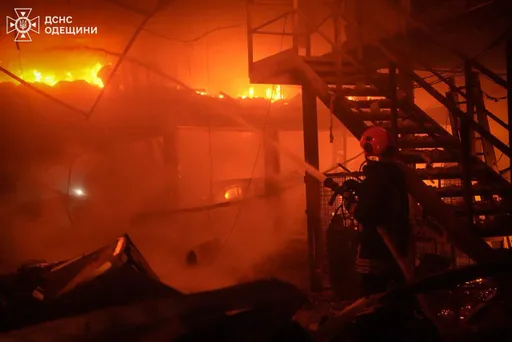The start of Tunisia’s election season on Monday saw the participation of 26 candidates, including businessman and media magnate Nabil Karoui, 56, who was arrested last month along with his lawyer brother Ghazi Karoui on tax fraud and money laundering charges.
Tunisia’s Independent High Authority for Elections (ISIE) confirmed that Karoui remains eligible to run in the presidential race despite his ongoing prosecution. It also said he could participate in the electoral TV debates scheduled to begin on September 7, if the courts allowed him to do so.
"The fact that the candidate Nabil Karoui is in jail is a concern but the electoral authority does not interfere in court cases, but at the same time strives to ensure the candidates all their rights," ISIE President Nabil Baffoun said.
The contentious affair ran into another legal hurdle on Tuesday when the Tunis court of appeal rejected the request for the contestant’s release, thus upholding his continued detention.
“It’s a terrible blow to Tunisian judiciary! A top frontrunner incarcerated in such abusive way”, Yadh Elloumi, a leader of Karoui’s party, said on his way to Tuesday’s hearing before the court pronounced its judgment. “Our judiciary is in the hands of the executive power.”
Before his arrest on August 23, Karoui, who’s also the head of the Qalb Tounes (Heart of Tunisia) party, was considered a leading contender in the September 15 vote after the death of President Beji Caid Essebsi at the end of July. He has become the main rival of Prime Minister Youssef Chahed in the electoral race.
Supporters of the media mogul even started putting up photographs of him, rebuffing the judiciary’s decision to arrest him and saying their campaign would open with a large popular rally in the southern city of Gafsa.
His political party said the charges are politically motivated, and accused Chahed of masterminding the arrest, saying the allegations against him date back to 2016 but had not been acted upon until recently because of the challenge he poses to established parties.
Samira Chaouachi, Spokeswoman of Heart of Tunisia, said it was “a political arrest aimed at keeping Karoui out of the presidential race”.
“This is a judicial matter that has nothing to do with the government and came after a complaint from I-Watch, a civil society organisation,” a government official told Reuters, discarding what he called “‘allegations”.
The 56-year-old has been under investigation since 2016, after anti-corruption watchdog I-Watch submitted a dossier accusing him of tax fraud.
He was charged with money laundering in early July shortly after stating his intention to stand in the elections.
The arrest came the same day authorities brought in a ban on three local outlets, including his own Nessma TV channel, from reporting on the election campaign over unlicensed "illegal" broadcasts.
He has been accused by regulators and some politicians of using Nessma to launch high-profile charity campaigns to bolster his popularity.
Karoui’s candidacy has been controversial since he rose to a top position in opinion polls. His detention is expectedly one of the issues in election debates.
In June, the poll-leading contestant was almost removed from the electoral race when parliament passed an amended electoral code that would bar candidates who received political publicity and those who own a charity in the year before the ballot. However, Essebsi neither rejected nor ratified the bill before he died, allowing the businessman to run.
Opposition and civil society groups saw the amendment as an anti-democratic last-minute attempt to exclude new political parties from participation.
Earlier in April, police stormed the offices of Nessma TV and took it off the air over accusations that it had breached broadcasting rules.
“It’s publicly well known that the Karoui brothers are thieves, but the government only took action in the 12 months preceding the elections,” commented Selim Kharrat, President of Tunisian NGO Al Bawsala, which promotes democracy and human rights and monitors the parliament's activities.
Several political leaders and rights activists viewed the timing of his arrest, just three weeks before election time, as suspicious amid concerns that the incident would disrupt the electoral process.
“[The] arrest of presidential candidate Nabil Karoui in the run-up to the electoral campaign would negatively affect electoral climate and threaten democratic process, especially as arrest came under suspicious circumstances," Tunisia’s Defence Minister and presidential candidate Abdelkarim Zbidi told TAP news agency.
Muslim-democratic party Ennahda’s candidate, Abdelfattah Mourou, was said to be worried about “interference between the judicial and political courts".
Karoui has previously stated he was targeted by "attempts to undermine his growing popularity".
“While the charges against Karoui may be valid, the timing of his arrest has given it a politicised image. That may in turn feed into Karoui’s appeal as an outsider who has been victimised by the political establishment,” observed Sharan Grewal, a research fellow at the Center for Middle East Policy at the Brookings Institution.
Since he launched with his brother Karoui & Karoui in 2002, the powerful entrepreneur has become one of the big names in Tunisia’s advertising industry. In 2007, he co-founded a major private TV channel, Nessma. A leading member of Nidaa Tounes party, he was an active supporter of President Beji Caid Essebsi’s election in 2014.
He only entered politics last May when he announced his candidacy for president on the Nessma channel. Later, he created his own political party, Heart of Tunisia. He also founded the Khalil Tounes Foundation to fight poverty.
“He has two very powerful tools at his disposal, a private TV and a charitable association”, the head of Al Bawsala noted. “When you’re able to buy votes and brainwash people, you will surely become popular in 12 months.”
Tunisian commentators, supporters as well as rivals of the politician claim the country’s justice has been subjected to political manipulation in the infamous case.
It is hard to tell whether his imprisonment will play to Karoui’s advantage in the forthcoming polls. Partisans perceive him as a victim of the state and the legal system, opponents consider him a notoriously corrupt, whilst others are not ready to bet on a man who was put in detention just weeks before.
With the prominent outsider behind bars, his campaign is being run by his wife Salwa Smaoui.
Karoui’s arrest has stirred legal, political controversy, showing the judiciary is not free from implications in the fight for political power.
“This justice is at the service of political interests, which tells us about the fragility and flaws of Tunisian young democracy,” Kharrat asserted.























